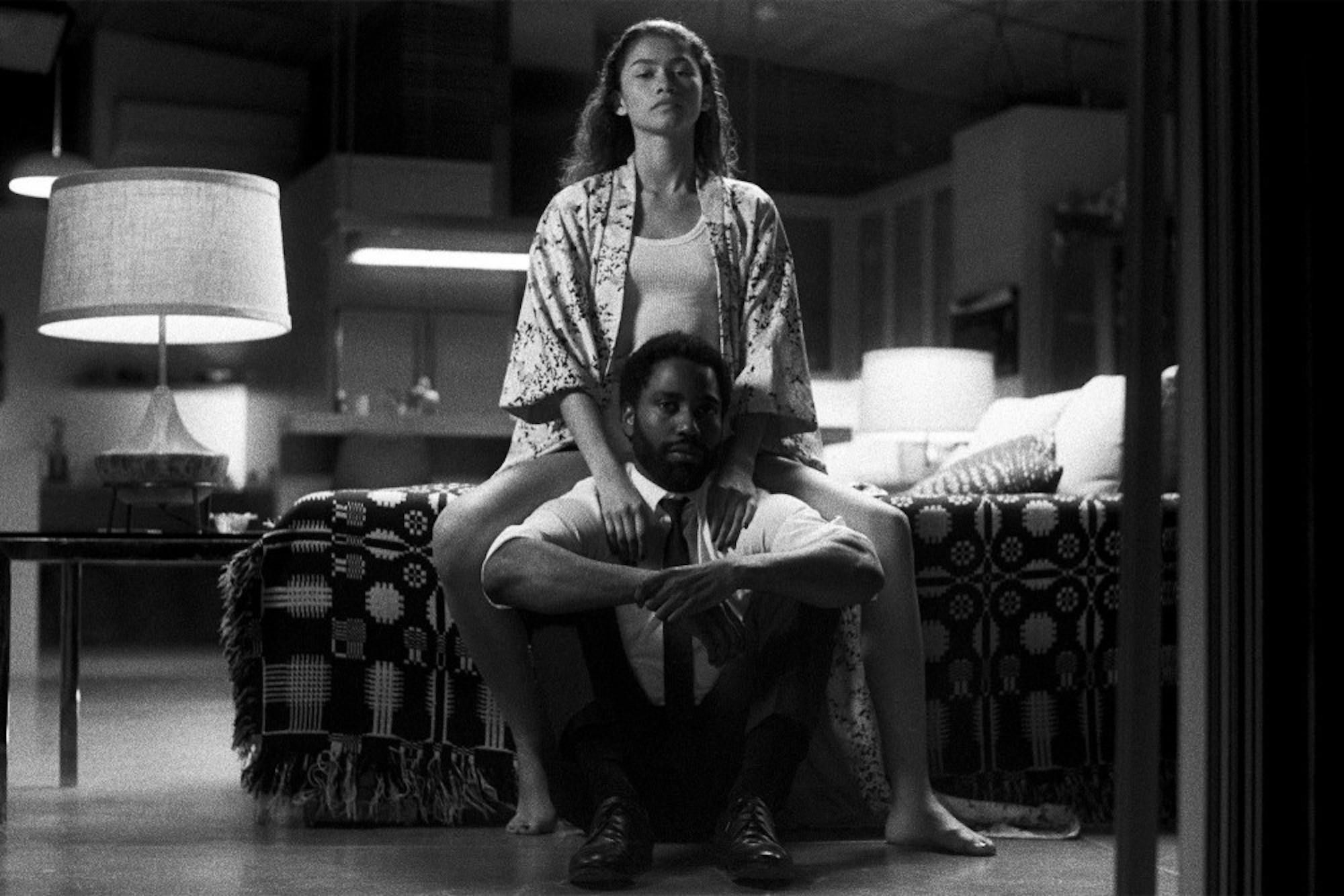You know those ‘uh-oh’ moments in award shows when a star forgets to thank their significant other in their acceptance speech? "Malcolm & Marie" (2021), now streaming on Netflix, ponders what happens later that evening when that couple gets home.
Spoiler alert: things get real ugly, real soon.
Writer and director Sam Levinson’s new black and white, two-hander melodrama stars John David Washington and Zendaya as the titular Malcolm and Marie — the glamorous Hollywood couple returning home after a night out. Malcolm is a conceited yet talented director who just launched his debut feature about the story of a young drug addict, which was well-received by its audience. Marie is his noticeably-younger morose girlfriend, rock, support-system, muse. And he forgot to thank her at the premiere. Yikes.
Levinson’s pandemic baby — written, conceived and filmed during the early months of quarantine — takes place over the course of a single night at the couple’s fancy (rented) Malibu house. Malcolm waits for the reviews of his latest “chef-d’oeuvre” to roll in.
He pours himself a drink in their luxurious kitchen, puts on some James Brown and indulges in a private after-party mood of peacockery and angry triumph. Marie isn’t having any of it. She’s indignantly preparing a box of mac-and-cheese— deeply hurt by his failure to acknowledge that his movie is clearly based on her own struggles with addiction, sobriety and depression.
As Malcolm fails to get off his high horse, babbling and complaining about the critics — specifically a “white lady from the Los Angeles Times" — Marie chooses to stay silent, catching Malcolm’s attention. When he asks her about it, she says, “I promise you, nothing productive is going to be said tonight.”
Sadly, she’s right.
Hence, the tirade of screaming and stomping begins as the two spar all over the house until daybreak.
She accuses him of committing a "spiritual theft" of her past traumas to make the movie without her input or involvement. He calls her “highly unstable” for being a solipsist, bringing up his ex-girlfriends, whom he credits as his other muses. Shocked by his cruel remarks, she then goes on to call him “mediocre,” suggesting he’s more privileged than the white female critic at the Los Angeles Times, and so on and so forth.
You get the gist: they scream, fight viciously, cry quietly, yearn for one other — only to wind up fighting again.
All this screaming and shouting does make me wonder whether Sam Levinson, the privileged white son of Barry Levinson, famed director of “Diner” (1982) and “Rain Man” (1988), is using Washington, a successful Black actor at the height of his career, as a mouthpiece to whine about negative reviews of his own work — including one written by Los Angeles Times critic Katie Walsh on his 2018 feature “Assassination Nation.”
Coincidence? I think not.
Using romantic relationships as a framework to debate the relationship between an artist and a critic isn’t a bad idea. But Levinson, seemingly frustrated with the state of his position in the film industry, appears to be having this debate with himself. Malcolm and Marie feel like self-indulgent think pieces who scream at each other rather than three-dimensional characters who feel authentic.
The film often strives for theatricality, as seen with the smoking scenes and the bathroom breaks between the action. But the writing fails to keep up. Being the talented performers that they are, Zendaya and Washington are doing all the heavy lifting. Yet, despite their best efforts, the script fails to answer two major questions. One, how and why have these two stuck together for as long as they have and, two, why can’t they just go to bed and discuss all this in the morning?
Nearly halfway through the film, Zendaya asks weakly, “Are you done?” and Washington replies, “Not even fucking close.” At this point, I remember looking at the runtime with a bag of chips in my hand and seeing that I had awhole hour left of this film.
Perhaps, art does imitate life. If you want to watch a couple fighting with each other for what feels like ages, watch “Before Midnight”(2013). If you want to witness a story based on the creator’s own relationship, watch “Marriage Story”(2019). Don’t watch "Malcolm & Marie" — it's basically a black and white Calvin Klein ad in disguise.






